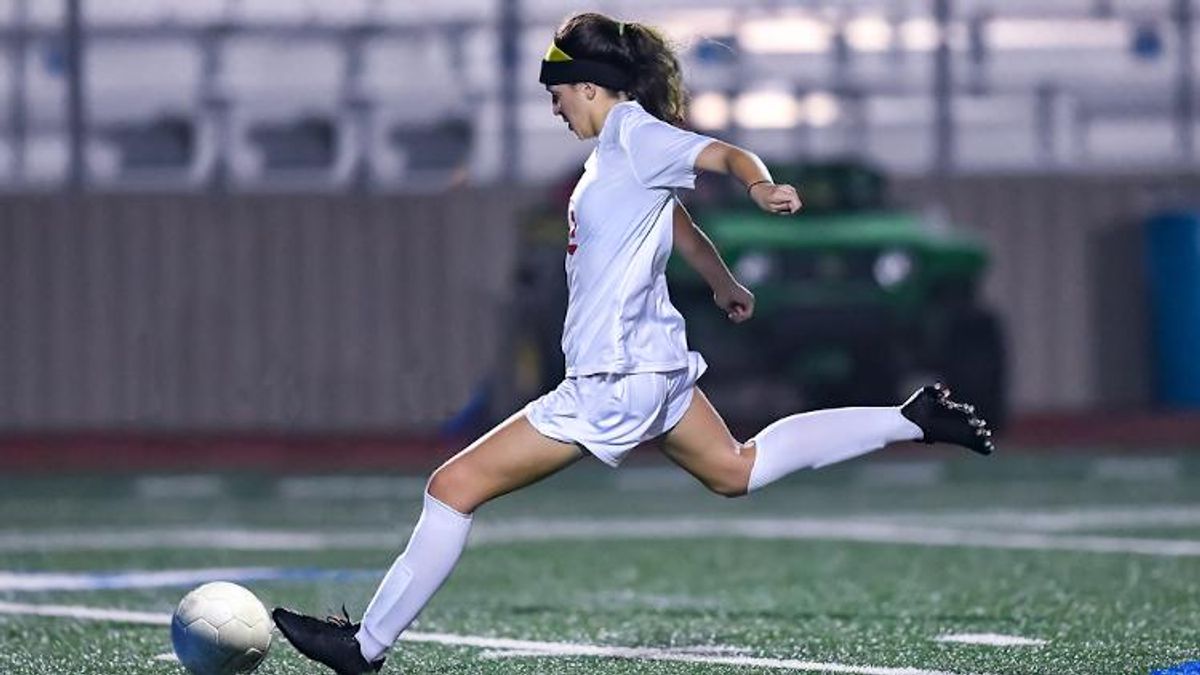West Virginia is close to becoming the next state to bar transgender athletes from competing in school sports consistent with their gender identity.
The state's Senate Thursday passed House Bill 3293, which includes such a ban, after the House of Delegates approved a version of it two weeks ago, the Associated Press reports. However, the House version covers only middle and high school athletics, while the Senate legislation includes college and university sports as well. The two versions must be reconciled before going to Gov. Jim Justice for his signature or veto. Justice hasn't indicated what he'll do.
So far 56 such bills have been introduced in states around the nation this year, out of a total of more than 200 anti-LGBTQ+ bills, of which a record 105 specifically target trans people; most of the anti-trans bills that don't deal with sports seek to deny gender-affirming health care to trans youth. Only one of the latter has become law, in Arkansas, where legislators this week overrode Gov. Asa Hutchinston's veto.
Supporters of the sports bills argue that they're trying to protect girls' and women's sports, and contend that trans females have an inherent and unfair advantage over their cisgender counterparts. Trans-exclusionary sports bills have been signed into law this year in Arkansas, Mississippi, and Tennessee, and executive orders to that effect issued in South Dakota. Idaho enacted a trans-exclusionary sports law last year, but it's been blocked by a federal court while a lawsuit against it is heard.
Opponents of such legislation point out that activists and scientists alike dispute the argument about trans athletes' supposed advantage and that there is no widespread domination by trans women in women's sports in colleges and universities or the Olympics, venues where trans athletes have competed for several years. Also, most of the lawmakers behind bills like these can't name a single instance where a trans competitor cause problems in their state.
The West Virginia Senate approved its bill by a narrow margin of 18-15. Some senators objected to including institutions of higher education, citing the possibility of boycotts by the National Collegiate Athletic Association and major businesses. North Carolina felt those repercussions in 2016 because of its infamous law restricting trans people's use of restrooms in government buildings (most of that law's provisions have now been repealed).
For instance, LGBTQ+ ally Richard Branson's Virgin Group is building a project in West Virginia related to high-speed transportation, Democratic Sen. Bill Ihlenfeld pointed out. "Some in this room don't seem to care that this bill is cruel, that's it's narrow-minded, that it's mean-spirited, that it's unnecessary, that it's purely political," Ihlenfeld told fellow senators, according to the AP. "You're willing to risk that Sir Richard Branson is going to see what we do here and change his mind about building that certification center."
"We should have left college athletics alone," Republican Sen. Tom Takubo added. But some senators said lawmakers should leave middle and high school athletics alone too.
"It's a solution looking for a problem," Democratic Sen. Mike Caputo said. "The problem's not the kids. The problem's not the student-athletes. When's the last time you sat down and talked to the young people in this state? They want a more inclusive society. My kids don't give a rat's behind what color you are, what your sexual orientation is, what you do in your personal life. The youth of today want to put this behind us."
Civil rights groups denounced the West Virginia legislation. "The West Virginia state legislature is stoking fear and division by advancing HB 3293 -- a discriminatory anti-transgender bill that has no place in West Virginia or this country," Human Rights Campaign President Alphonso David said in a press release. "There is no evidence that supports the need for this legislation, and it will jeopardize the wellbeing of transgender kids across the state -- who are just kids who want to play. The health and safety of children should never be reduced to a political talking point. West Virginians need state legislators to prioritize the COVID-19 pandemic and economic relief, not manufactured issues that discriminate against transgender youth. The West Virginia House of Delegates must vote down this bill and stand firm for equality for all West Virginians."
"This fight is far from over," Fairness West Virginia Executive Director Andrew Schneider added in the release. "Transgender kids across West Virginia deserve love, support, and the chance to fully participate in the sport they love, and we'll continue standing up for them every day. Senators have unfortunately made this bad bill even worse by extending the transgender athlete ban to cover colleges and universities without any regard for how that could affect West Virginia University's standing with the NCAA. This bill is bad for business, it's bad for our state's image, and it's bad for kids who are just looking to belong."



















































































